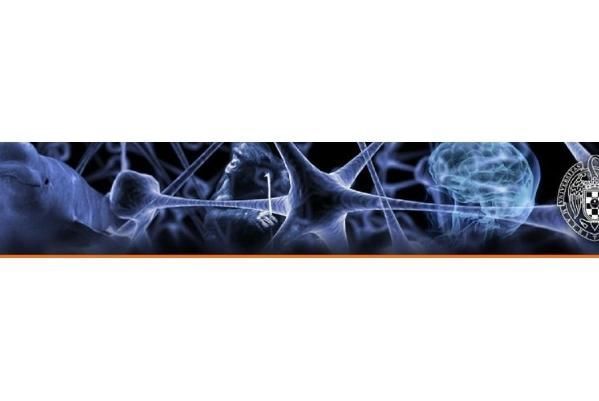
Luis Francisco
García Rodríguez
Publicacions en què col·labora amb Luis Francisco García Rodríguez (22)
2024
-
Re-exploring the relationships of humor styles with dark triad and self-esteem using structural equation modelling
Personality and Individual Differences, Vol. 221
2021
-
Comparing the Prediction of Dimensional Personality Disorders (PID-5) after Three Personality Trait Models: Five Factor, Zuckerman, and Cloninger Models
European Journal of Psychological Assessment, Vol. 37, Núm. 3, pp. 167-177
2019
-
Dimensional Pathological Personality Predicting Personality Disorders: Comparison of the DAPP-BQ and PID-5 Shortened Versions in a Spanish Community Sample
Journal of Psychopathology and Behavioral Assessment, Vol. 41, Núm. 1, pp. 160-173
2016
-
Genetic association study within the framework of Zuckerman's psychobiological personality model
Anuario de psicología, Vol. 46, Núm. 1, pp. 17-30
2015
-
Fluid intelligence and working memory capacity: Is the time for working on intelligence problems relevant for explaining their large relationship?
Personality and Individual Differences, Vol. 79, pp. 75-80
-
Relationships between Karolinska Personality Scales and the new factors and facets of the Zuckerman-Kuhlman-Aluja Personality Questionnaire
Escritos de psicología, Vol. 8, Núm. 3, pp. 20-25
2013
-
Reanalysis of Eysenck's, Gray's, and Zuckerman's structural trait models based on a new measure: The Zuckerman-Kuhlman-Aluja Personality Questionnaire (ZKA-PQ)
Personality and Individual Differences, Vol. 54, Núm. 2, pp. 192-196
2012
-
Structural analysis of the facets and domains of the Zuckerman-Kuhlman- Aluja Personality Questionnaire (ZKA-PQ) and the NEO PI-R
Journal of Personality Assessment, Vol. 94, Núm. 2, pp. 156-163
-
Zuckerman-Kuhlman-Aluja Personality Questionnaire (ZKA-PQ) and Cloninger's Temperament and Character Inventory Revised (TCI-R): A comparative study
Scandinavian Journal of Psychology, Vol. 53, Núm. 3, pp. 247-257
-
Zuckerman-Kuhlman-Aluja Personality Questionnaire as a predictor of MCMI-III personality disorder scales: The role of facets
Personality and Mental Health, Vol. 6, Núm. 3, pp. 217-227
2010
-
Incremental effect for antisocial personality disorder genetic risk combining 5-HTTLPR and 5-HTTVNTR polymorphisms
Psychiatry Research, Vol. 177, Núm. 1-2, pp. 161-166
2008
-
Exploratory and confirmatory factorial structure of the MCMI-III Personality Disorders: Overlapping versus non-overlapping scales
European Journal of Psychiatry, Vol. 22, Núm. 2, pp. 59-68
2007
-
Predictions of the MCMI-III personality disorders from NEO-PI-R domains and facets: Comparison between American and Spanish samples
International journal of clinical and health psychology, Vol. 7, Núm. 2, pp. 307-321
-
The MCMI-III personality disorders scores predicted by the NEO-FFI-R and the ZKPQ-50-CC: A comparative study
Journal of Personality Disorders, Vol. 21, Núm. 1, pp. 58-71
-
Zuckerman's personality model predicts MCMI-III personality disorders
Personality and Individual Differences, Vol. 42, Núm. 7, pp. 1311-1321
2006
-
La hipótesis de la diferenciación y el efecto Flynn
Psicothema, Vol. 18, Núm. 2, pp. 284-287
-
Personality level on the big five and the structure of intelligence
Personality and Individual Differences, Vol. 40, Núm. 5, pp. 909-917
-
Testing the indifferentiation hypothesis during childhood, adolescence, and adulthood
Journal of Genetic Psychology, Vol. 167, Núm. 1, pp. 5-15
2005
-
Is openness to experience an independent personality dimension?: Convergent and discriminant validity of the openness domain and its NEO-PI-R facets
Journal of Individual Differences, Vol. 26, Núm. 3, pp. 132-138
2003
-
Diferenciación por nivel de habilidad en varones y mujeres adultos
Psicothema, Vol. 15, Núm. 2, pp. 172-175
